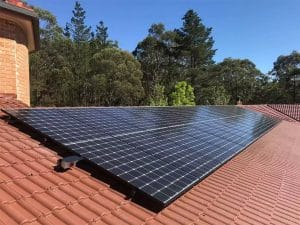Glyndwr University in Wales will take the lead in a £4.4 million (AUD$7.15 million) study into improving the efficiency of photovoltaic solar cells in temperate climates, with a view to boosting uptake of solar energy in the UK.
The University’s Centre for Solar Energy Research (CSER) will develop new photovoltaic (PV) solar cells which are optimised for collecting solar energy from the often wet and cloudy conditions in Wales, an important goal to achieve for a country hoping to generate 20 percent of its energy from solar by 2050.
The CSER also needs to find ways to cut solar energy system installation costs if it wants to help accelerate use of solar technology in Wales, which it says has been “far too slow.”
CSER researchers will be collaborating with scientists from Bangor and Swansea universities to complete the three year project which has been part-funded by the EU’s Convergence European Regional Development Fund.
Professor Stuart Irvine, Director of CSER, said: “We’re currently operating with cells of 5cm square but the aim is to get up to test modules of 30cm square – taking us much closer to a size of solar cell which can be used commercially to provide the future electricity needs of Wales.”
“The project also combines our thin film technology with innovative dye sensitised solar cells with researchers at Bangor and Swansea Universities”.
“We have world class facilities with the capability to see everything through from initial research to the production of small thin film solar cell modules. This is very much a collaborative project, with our expertise in solar energy being combined with the electronics technology expertise of Swansea University in improving efficiency when converting the energy into electricity which can be used on the National Grid.”









































